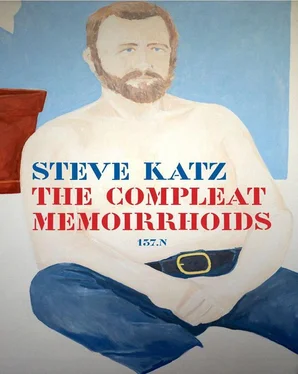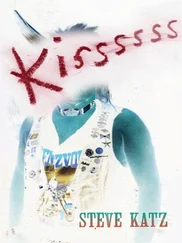One time, coming home from my job after school on Union Square, I found myself pressed against a woman who at first did not seem to mind my touching her. There were also some black people around, returning to Harlem. I whistled, I hummed “A Night In Tunisia,” the Parker variation on “All The Things You Are.” At the same time I pressed my ever-present erection against the woman’s soft rear. I was dangled between heaven and hell. The train roared into the long express run between 59th and 125th. No one joined me in “A Night In Tunisia.” The woman moved, and my movement matched hers.
Half the people got off at 125th street. The woman moved away from me. The train moved on to 145th. I hummed “Moody’s Mood For Love.” Before she got off at 168th Street, the woman, quite attractive even in her business suit, leaned over me and said, “Young man, you’re going to get yourself in a lot of trouble.” I didn’t dare look at her. I never thought about who the person was I was touching. It was female flesh. How could the trouble she predicted be any worse than my unrelenting horniness?
The atmosphere of Washington Heights clamped down on me, squeezed the shame into my pores as I ascended the steps at the south end of the 175th Street station. I was going home. Often alone at home I would sit in my window and watch the street, hoping some woman would pass, any woman. The apartment was on 173rd Street, between Fort Washington and Haven Avenue. There were few pedestrians. Still, I sat at the window, a book at my elbow, and watched. I hoped for a woman, an attractive woman, who might look up and notice me, and recognize my need, and be willing to alleviate my swells of desire. I would have been better off, more productive in my life had I avoided this obsession. I might have turned out to be a better guy.
The tiny green kiosk at the top of the stairs from the subway was open. Barney, the keeper of this little store, was dependable. He was not judgmental. He sold newspapers and candy. I bought a piece of Dubble Bubble from him with my last two cents. Maybe chewing would help. Maybe blowing a bubble and letting it collapse across my face was the answer. I didn’t even know the question. Jayhood Wright Park was full of young mothers wheeling their children. I went home. Dinner was ready. I ate very little. This worried my mother. I told her I’d eat later. After some chemistry homework, I went to bed and turned on Symphony Sid. If not for Symphony Sid, I could easily die. Charlie Parker with strings. Bird. Slowly the music relaxed the press of my humiliation. Slowly the shackles of my blitzkrieg lust released into the freedom and discipline of jazz, into the art I loved.
EATING DOG / TALKING TURKEY
I
The billboards stun me as we enter Communist China. Years before when I crossed into East Berlin through Checkpoint Charlie, before the wall went down, the sudden lack of commercial advertising I found relaxing though the absence of color was a little dreary. A few propaganda posters created only the slightest visual static. Wide, colorful ads on the billboards across from the Guangzhou train station, my entry city to The People’s Republic, hit me flush in my preconceptions. Here are big splashes for Sony, Nike, Mitsubishi, Motorola. This is a different twist of Commie, thinks I.
Beyond the panoply of ads a small market, half covered, half exposed, offers a spread of lively hot-pot restaurants. This is 1986, one of new China’s first forays into private entrepreneurship. The perfume rising in the steam from hot-pots simmering at each of the tables is sweet and enticing. The market displays an abundance of dog sold as meat. You can get it freshly slaughtered and skinned. You can buy thighs, shoulders, quarters, half a dog. Dog carcasses hang on meathooks across the butcher blocks. You can get a live one and have it butchered, or take it home alive in a wicker basket to prepare for yourself. The dog they prefer to eat is the black chow. They lie in rows across tables, dark tongues hanging out. After I am in Guangzhou for a few days I realize the pressure of population and scarcity of living space make it impossible to think of dog as pet. The favored pet is the songbird. On weekends people stroll through the parks carrying their birds in cages, and they relax in the balmy weather with conversation and birdsong.
We settle at one of the outdoor hot-pot restaurants. They serve a savory broth bubbling at your table in a chafing dish over the blue flame of a Sterno can. The server brings a platter of veggies and instructs on the sequence of cooking them. She then brings some meats and offers similar instructions. Then she asks a question that Rafael translates for me as, “Would you like some fragrant meat?” “Of course,” I quip in my wise-ass way. “We sure don’t want putrid meat.” She brings a portion of fragrant meat and drops it into our broth. After this specialty simmers a while a perfume, lightly floral, engulfs the broth. Not until I’ve eaten a bit of it does Rafael explain that “fragrant meat” is the euphemism for dog. It tastes quite nice, like nice dog, and the bouquet it adds to the soup is the direct opposite of the smell of wet dog. The experience expands my appreciation for man’s best friend. I can hardly look at a well coifed poodle, for instance, without thinking, “yum yum.”
II
We hire a pedal cab to take us from the train station to our hotel on West Lake in Hangzhou. The hotel boom around West Lake hasn’t yet begun, and ours is probably the most upscale in Hangzhou at the time. It is called, I think, West Lake Shangri-la. It takes more than an hour for the pedal cab driver to struggle up the hills for two miles over rough pavement, pulling the weight of Rafael, myself, and our luggage. A tough way to earn your renmin-b. The hotel is a sturdy, rambling brick and stone building of some twelve stories, built as a luxury hotel by the British, probably in the twenties, and run down since the revolution. Its spaciousness and the worn grandeur of its furnishings offer a taste of faded luxury. Our room doesn’t cost much, and comes with an invitation to their New Year’s dinner. The accommodation is large and comfortable. Some of the lamps, the telephone, and other amenities, don’t work, but the beds and towels are clean, and there is hot water occasionally. They have hired a Swiss hotelier to get the place back into shape, and their goal is obviously five stars.
Large stone tablets incised with calligraphy are set in the ground all around the perimeter of West Lake. We walk among the people through the mysteries of this storied lake. Pagodas, temples, pavilions come in and pass out of view as the mists wander through. When Rafael stops to read an inscription on one of the steles — a passage of Lao-Tzu, a poem of Li-Po or Tu-Fu, a Confucian aphorism — people gather to ask that he read it to them. The people are literate, but have been taught only the simplified characters, and the ones on the tablets are traditional and more elaborate. The people can’t read them, so most of their written heritage is hidden from them. He tires of this after an official cadre member, who has been trailing us, interrupts him to lecture everyone on the greatness of The People’s Republic. We leave her standing tall in her Mao suit as she continues her propaganda lecture to the people who had been interested in the poem Rafael was reading for them off the stone. On the way back to the hotel we stop at a friendly dumpling house and eat a couple of dozen dumplings, to the great amusement of the clientele who have never seen white ghosts suck down dumplings at their restaurant before.
III
We have only the most casual clothes, but are welcomed anyway into the formal dining room for the New Year’s dinner. It’s in a large ballroom, the dance floor surrounded by tables. On one end a stage and bandstand presents a dance band, playing American swing music from the Thirties and Forties. You might expect them to roll out Fred Astaire and Ginger Rogers to entertain the befuddled Western tourists sitting at the tables. The ambience is derived from some Busby Berkeley film, a dinner club look from a depression era Hollywood frippery. Five waitresses tend each table, in our case five of them against two of us. Rafael overhears them discussing every slight detail of our behavior, every move we make with knife and fork to attack the dinner of turkey, stuffing, broccoli, sweet potato. and finally plum pudding. They watch us closely. They make careful notes.
Читать дальше












